There are many reasons paradigms are hard to change, some of them are scientific, but the most powerful form of resistance is more personal.
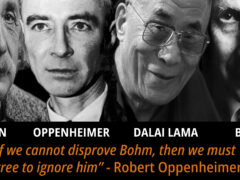

There are many reasons paradigms are hard to change, some of them are scientific, but the most powerful form of resistance is more personal.
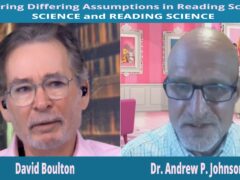
Dr. Andrew Johnson is a Reading Specialist and a Distinguished Faculty Scholar and Professor of Literacy at Minnesota State University. I, David Boulton, am a Learning Activist with Learning Stewards. Dr. Johnson and I have very different views about reading and the process of learning to read. We agreed to learn together and respectfully challenge […]
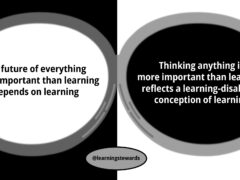
In a recent poll, I asked: “Within their possible agency, what’s more important to children’s futures than how well they can learn?” I gave two quick-choice responses and invited comments: 1 – Some things are more important 2 – Nothing is more important Between LinkedIn and Facebook, the poll received around 10,000 impressions, but only […]
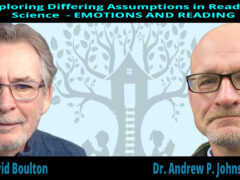
Dr. Andrew Johnson is a Reading Specialist and a Distinguished Faculty Scholar and Professor of Literacy at Minnesota State University. I, David Boulton, am a Learning Activist with Learning Stewards. Dr. Johnson and I have very different views about reading and the process of learning to read. We agreed to learn together and respectfully challenge […]
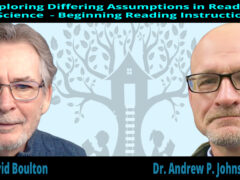
Dr. Andrew Johnson is a Reading Specialist and a Distinguished Faculty Scholar and Professor of Literacy at Minnesota State University. I, David Boulton, am a Learning Activist with Learning Stewards. Dr. Johnson and I have very different views about reading and the process of learning to read. We agreed to learn together and respectfully challenge […]
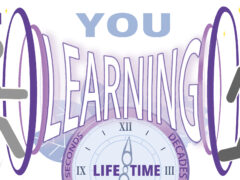
It’s Time to Awaken Your Learning Rewind your life twenty minutes or twenty years. Now ask yourself: “What’s the difference between my innermost me back then, and my innermost me now? What’s the difference in how I am who I am? What about ME has changed?” Now ask yourself: “Within what’s changed, what’s not a […]
NAEP (K-12) scores aren’t perfectly accurate measures of grade-level reading proficiency. NAAL (17-year-old and up) scores aren’t perfectly accurate measures of adult literacy. The fact that they are separate assessment systems used to report on very different populations and yet come pretty close to predicting each other suggests they are both in the ballpark and […]

Click this or the image for more.
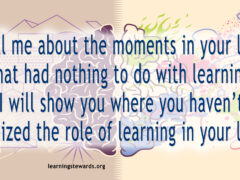
Click this or the image for more.
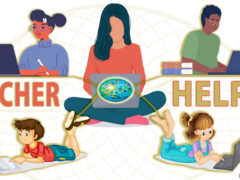
The purpose of reading instruction is to teach learners to be able to progress when they are reading on their own – when they are reading in-between instructional sessions. Learners who don’t read enough between instructional sessions don’t progress. In terms of the “practice” required to advance in reading, the number of words read during […]
